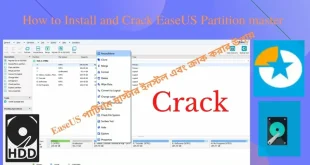Competition is stiff in glazing . Good money management is essential for financial success. It’s about understanding cash flow, controlling costs, and making smart financial choices. This guide covers the strategies and tools. It includes insights into ‘glass billing software’. You need these to streamline your glazing business finances. It will also help you improve profits and set yourself up for long-term success.
Implementing software systems to maximize efficiency

The days of spreadsheets and manual invoices are fading. Today’s digital age demands that any glazing business embrace technology. This is essential for optimizing its finances. The right software can automate tasks. It can also reduce errors and give insights into your business.
Comprehensive Software Solutions
The glazing industry has specialized software. It’s got a set of features tailored to your unique needs. These platforms go beyond basic accounting software. They provide tools for quoting, job management, inventory control, and more. Popular options include:
- Smart Toolbox is a complete software package. It’s made for glass and glazing businesses. It offers features for quoting, order processing, inventory management, scheduling, and financial reporting.
- Glass Manager is another top software. It provides a full solution for managing your glazing business. It covers everything from estimates and orders to production and accounting.
- Jobber is popular for field service businesses. It’s not for glazing . It offers features for scheduling, invoicing, customer management, and online booking.
Key Features of Glass Company’s Software
When evaluating software options, look for the following key features:
- You can use many platforms to make templates. They let you generate professional, accurate quotes. They let you store material pricing and calculate labour costs. This ensures consistency and saves you time.
- Streamline your business operations with comprehensive job and inventory management from a single platform. Track stock levels. Get alerts for low stock items. Generate buy orders.
- Track your business performance effectively with detailed reports and real-time analytics. These insights can help you find areas to improve. They can also inform business decisions.
- This feature is for managing customers and invoices. It stores detailed customer information. It also tracks communication history and manages invoices well. Many platforms offer online payment integration. It streamlines your billing and boosts flow.
- Mobile-responsive software empowers you to efficiently manage your business operations from any location, by providing tools for job tracking, team communication, and invoice creation.
Financial Management Strategies

To achieve financial success, it’s not enough to simply streamline your finances with software; you must also prioritize profitability. You need to adopt sound money practices.
Maintain a healthy cash flow
Healthy cash flow is essential for any business, including glazing businesses, to cover expenses and fuel growth through investments. Here are some ways to improve cash flow:
Invoice promptly and regularly
Prompt invoicing upon job completion or material delivery ensures timely payment and healthy cash flow.
Offer flexible payment options. Make it easy for customers to pay. Do this by accepting many payment methods. Offer diverse payment options like credit cards, debit cards, and online payments while negotiating longer payment terms with suppliers to optimize cash flow.
Set clear credit policies
Establish clear credit policies and stick to them. We’ve had need deposits for larger projects and charge interest on late payments. Check your accounts receivable. Diligently monitor and follow up on outstanding invoices to Prioritize maintaining a consistent and positive cash flow to ensure your business’s financial stability. Follow up on late payments.
Separate your personal and business finances

Your personal money and your business money should be kept separate. This is very important. This helps you maintain organized financial records. It also ensures you are following the law.
The benefits of keeping them separate are many:
- Simplified accounting is better. It makes tracking your business money easy. This simplifies tax and financial reporting.
- Get a clearer picture of your business’s finances. Personal transactions cloud the waters.
- You get limited liability protection. If legal issues arise, keeping your finances separate can shield your assets.
Control expenses and manage debt
It’s key to watch your expenses and manage debt well. This is crucial for staying profitable. Here are strategies for controlling expenses:
- Track all expenses. Use accounting software or spreadsheets. Use them to track all business expenses, no matter how small.
- Find areas to cut costs. Regularly analyze your business expenses to identify areas for cost reduction without compromising the quality of your products or services.
- Negotiate with suppliers. Don’t fear to haggle with them to get the best prices on materials and services.
Managing debt :
- Explore financing options. To minimize borrowing costs and maintain a healthy credit score, compare loan options for the best rates and terms, and prioritize timely debt repayment.
Risk Management

While all businesses encounter risks, glazing businesses face some unique challenges. Using risk management can protect your business from financial loss. It also ensures long-term stability.
Protect against client bankruptcy
Client bankruptcy can hurt your cash flow. It can even threaten your business’s survival. Mitigation strategies:
- Vet clients carefully. Before giving credit or taking on big projects, check your clients finances.
- Must deposit and progress payments. This will reduce your risk. Ask for deposits upfront and payments during the project.
- Consider buying credit insurance. It’s a protection that guards you from losses due to client non-payment.
Manage downturn risks
Economic downturns are real. The construction industry, including glazing , can suffer a significant impact. Broadening your client base across different market segments can protect your business from economic downturns:
- Keep a healthy cash reserve. It’s can help you cover expenses and meet financial obligations when business is slow.
- Cut unnecessary expenses. Review your costs. Find areas to cut without hurting quality or service.
Secure Your Financial Data
Robust cyber security is essential in today’s digital world to protect crucial business financial data.
- Use strong passwords. Secure all your devices and accounts with them. Enable multi-factor authentication whenever possible.
- Back up your data often. Experts often recommend that you backup your financial data. You should do this to a secure cloud service or external drive.
- Keep your software updated. Install updates to get the latest security patches.
- Employee cyber security training is vital to protect businesses from online threats.
Reinvest in Your Business
Employee training is a good investment for businesses. It leads to employees being more productive. Training can also make customers happier. Happier customers and more productivity help businesses make more money.
Employee Development
Employee training drives business success by enhancing productivity, customer satisfaction, and profitability:
- Provide ongoing training. Offer regular chances to keep your employees skills up-to-date. They’ll also learn about new technologies and techniques.
- Encourage professional certifications. Help your employees get industry certifications. They’ll add to their skills and credibility.
- Create a positive work environment. Foster a supportive one where employees feel valued and motivated.
Upgrade equipment and technology
Investing in new equipment and technology can improve efficiency and cut labour costs. They can also enhance your work quality. Consider these upgrades:
- Offer your customers the latest energy-efficient windows and doors. They help you stay ahead of the curve. They attract eco-conscious consumers.
- Automated cutting and fabrication equipment improves accuracy and cuts waste. It also boosts productivity.
- Regularly upgrading your business software helps it run smoothly. It also gives you access to new features. Upgrading also makes your software more secure.
Conclusion
Businesses need strong financial plans to succeed in competitive markets. They need to manage their money well to make profits and grow.
 Daily Blogger News Stay updated with the latest trends and insights. Your reliable source for daily updates and information.
Daily Blogger News Stay updated with the latest trends and insights. Your reliable source for daily updates and information.







